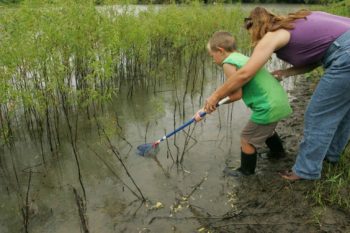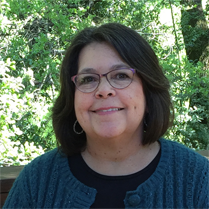Raising Capable Adults
 As a parent, one of the things I wanted for my children was for them to grow up to be independent, capable adults. Raising capable adults is a process that begins when children are very young. Think of the two-year-old who yells, “I do it!”, when you’re trying to help them. The process continues until they leave home.
As a parent, one of the things I wanted for my children was for them to grow up to be independent, capable adults. Raising capable adults is a process that begins when children are very young. Think of the two-year-old who yells, “I do it!”, when you’re trying to help them. The process continues until they leave home.
Preschool Years
It is amazing what young children can do for themselves. I remember when my little nephew was three years old and wanted a glass of water. His mother told him exactly what to do, so that he could do it for himself. He moved a chair up to the cupboard and climbed up to get a plastic glass. Then he moved the chair to the sink, climbed up, turned on the faucet and got his water. He was so excited that it motivated him to want to do more things for himself.
Young children ages 3-5 can pick up their toys, clean up their rooms, help set the table, help prepare meals and many other simple chores. They need to be supervised and guided, but it instills in them a sense of responsibility.
Grade School Years
As children grow, so does their capacity to problem solve and act independently. At Christmas time my sister wanted to keep my ten-year-old granddaughter and seven-year-old grandnephew busy, so she asked them to decorate her fireplace for Christmas. It was a raised fireplace with a candle holder inside. The cousins talked about possibilities for a while and gradually came up with a plan. They asked my sister for a light-colored tablecloth, which they used to cover the candle holder. It began to look like a hilly landscape. Then, they strategically placed some small ceramic buildings on the tablecloth and converted the space into a wintery village. It looked beautiful!
School age children can use their creativity to problem solve. They can do household chores independently as well as work on projects that interest them. They can follow recipes and other written directions. They can plan, organize and be contributing members of a family team.
Pre-teen and Teenage Years
The pre-teen and teen years is the time when children seek independence the most. Developmentally, it is the time when acquiring independence is most critical. In my parenting workshops, I ask middle and high school parents to write down three things that they currently do for their children, that their kids are capable of doing for themselves. I get answers like make their lunch, do their laundry, fold and put away their clothes, clean their room. Parents then strategize on how to teach their children to do those tasks for themselves.
Adolescents need to be able to take care of their basic needs before they leave home. They need to have experience solving their own problems whether they be social, academic or professional. This does not mean they have to do it alone, but ultimately, they will be responsible for the outcomes of decisions they make. If young people don’t have these skills and experiences before they leave home, life will be very difficult for them.
Teach Your Kids
Teach your kids to take care of themselves. Give them opportunities to solve problems. It takes patience on the part of parents. It requires putting up with imperfection. It also means things will take more time than they would of you did it yourself. But, it’s worth the difficulty and discomfort to help your children become independent, capable adults.
With love and affection,
Rosemarie
Copyright © 2018 by GenParenting

Rosemarie Pérez has worked with English learners and their families in public education for more than twenty years. She has served as a bilingual teacher, professional developer, and district administrator. Administrative roles included serving as the Director of English Learners for an elementary school district and as a Coordinator of Reading and Language for the San Mateo County Office of Education. Rosemarie continues to work with families as she leads the Santa Clara County Office of Education’s Parent Engagement Initiative during the past three years. Ms. Pérez provides expert guidance to teachers, school site staff, and school administrators in creating culturally sensitive parent training modules and academic curricular units. She facilitates parent education and Common Core Standards workshops. Engaged parents are further trained to become parent leaders and advocates. Rosemarie is the mother of five adult children and three grandchildren.


A very thought provoking blog. Karen
Thank you, Karen. I think teaching kids to be independent is very important.